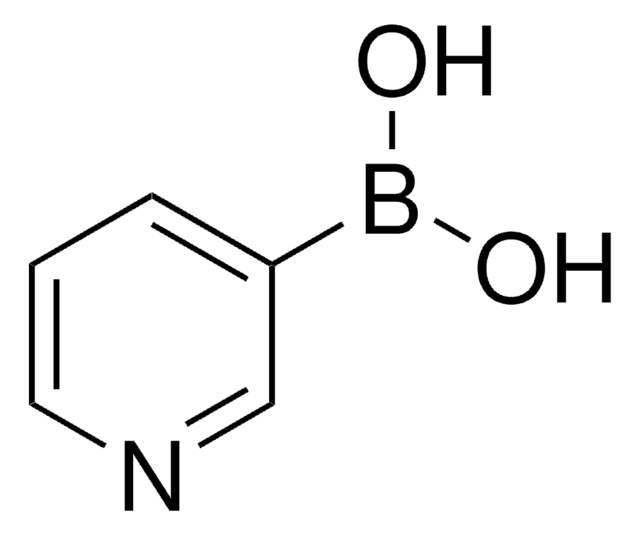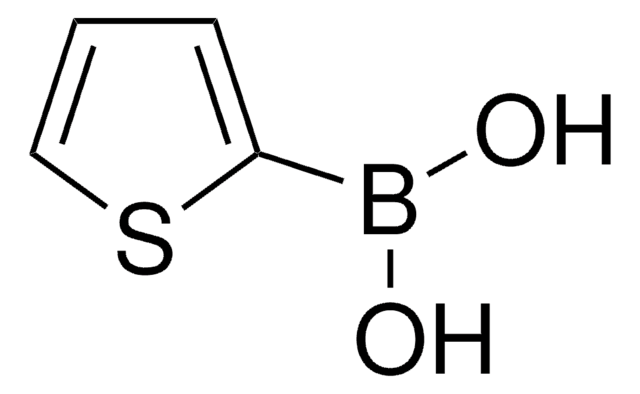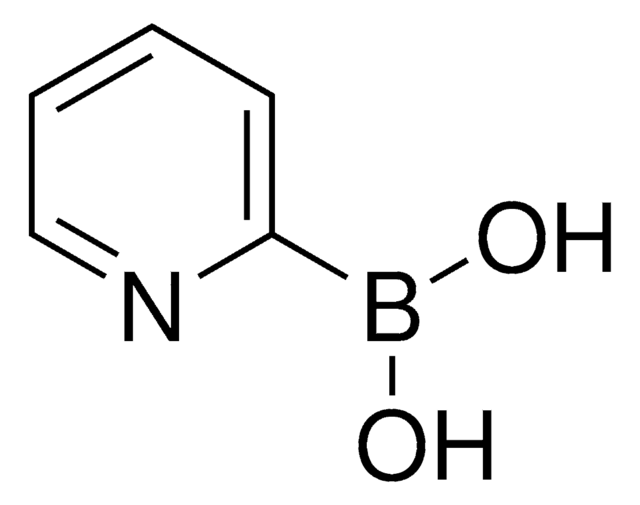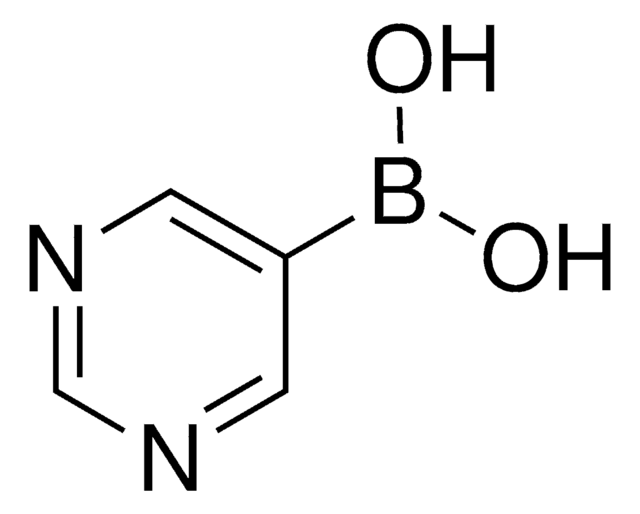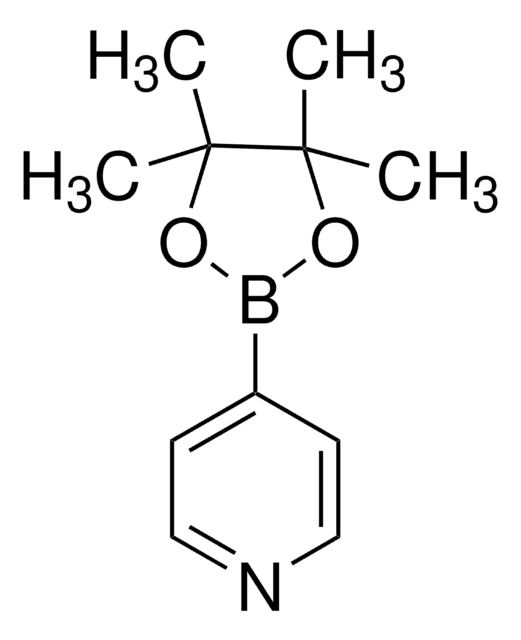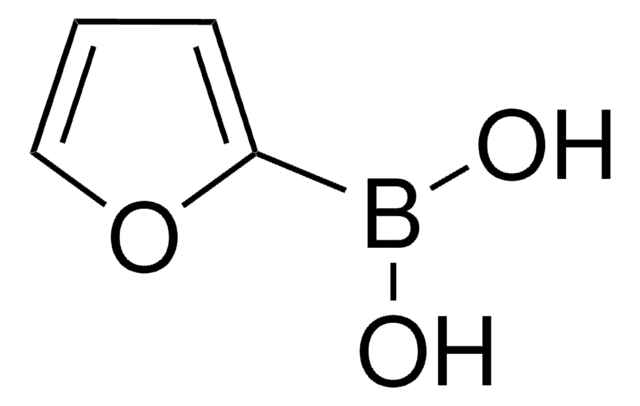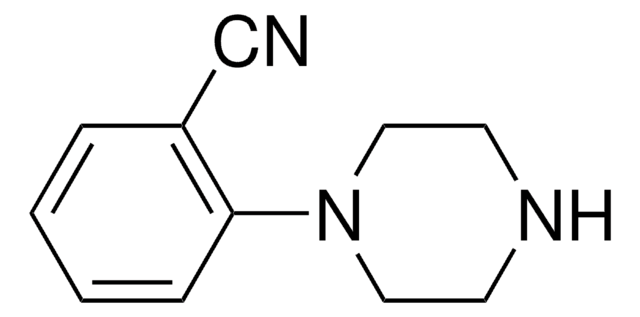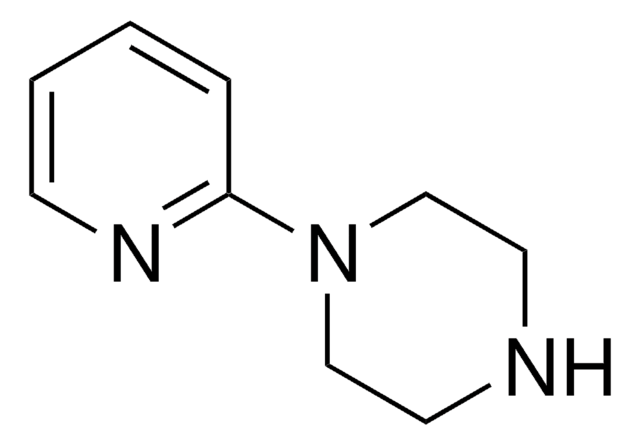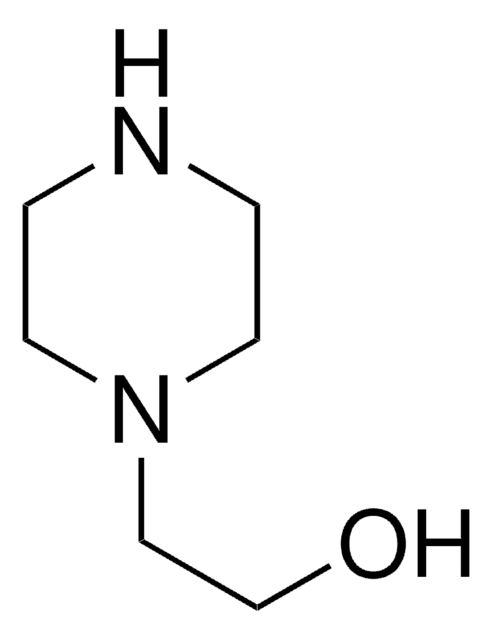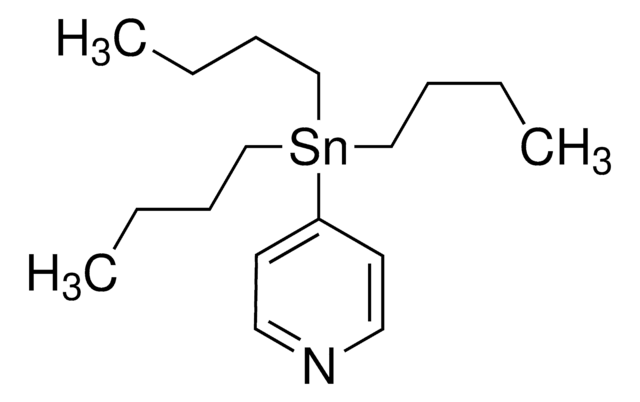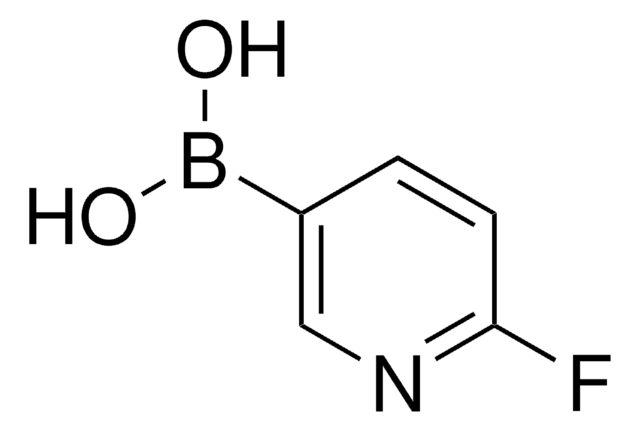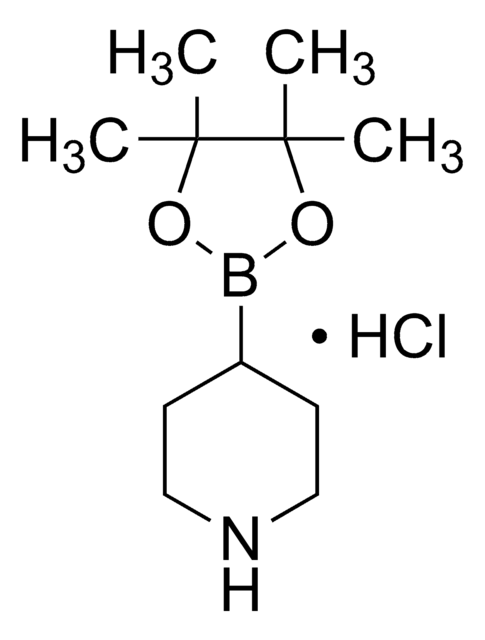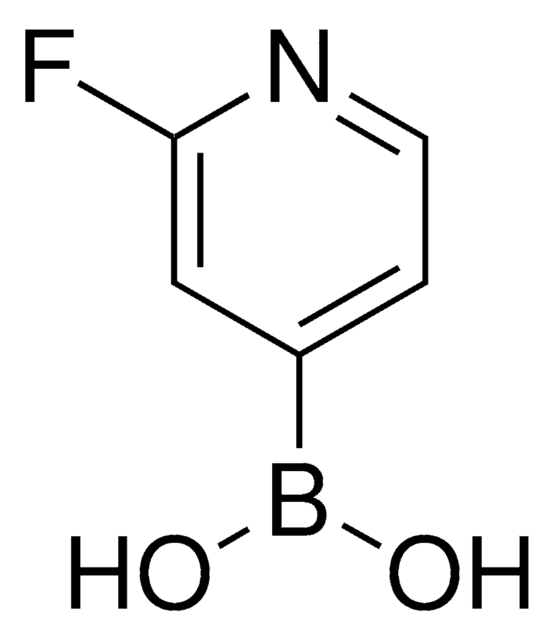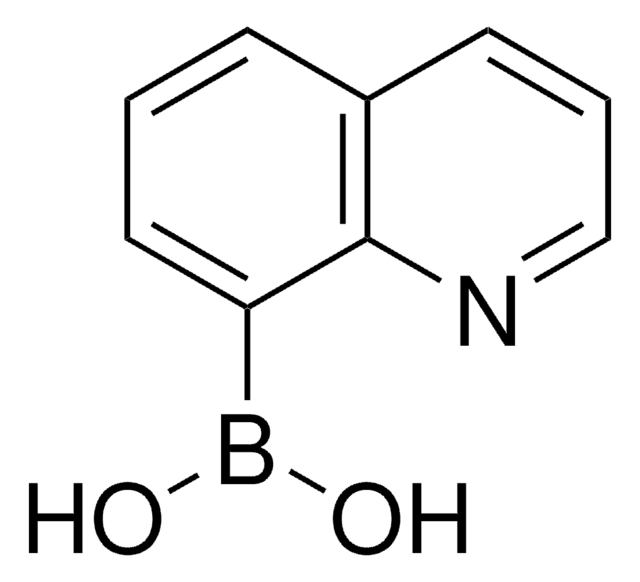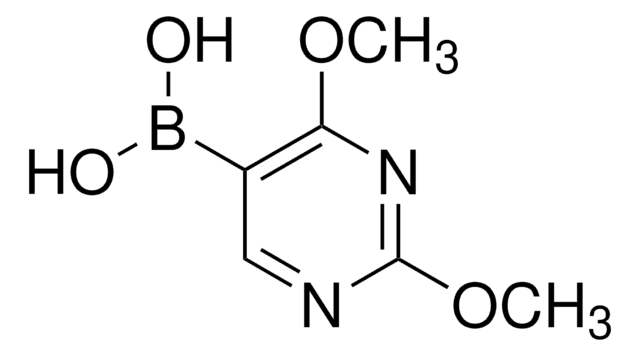634492
4-Pyridinylboronic acid
90%
Synonyme(s) :
4-Pyridineboronic acid, 4-Pyridylboronic acid
About This Item
Produits recommandés
Niveau de qualité
Essai
90%
Forme
solid
Pf
>300 °C (lit.)
Température de stockage
−20°C
Chaîne SMILES
OB(O)c1ccncc1
InChI
1S/C5H6BNO2/c8-6(9)5-1-3-7-4-2-5/h1-4,8-9H
Clé InChI
QLULGIRFKAWHOJ-UHFFFAOYSA-N
Catégories apparentées
Description générale
Application
- Palladium-catalyzed Suzuki-Miyaura coupling reactions
- Ligand-free palladium-catalyzed Suzuki coupling reaction under microwave irradation
Reagent used in Preparation of
- HIV-1 protease inhibitors
- Potential cancer threapeutics, such as PDK1 and protein kinase CK2 inhibitors
Autres remarques
Code de la classe de stockage
11 - Combustible Solids
Classe de danger pour l'eau (WGK)
WGK 3
Point d'éclair (°F)
Not applicable
Point d'éclair (°C)
Not applicable
Équipement de protection individuelle
Eyeshields, Gloves, type N95 (US)
Faites votre choix parmi les versions les plus récentes :
Déjà en possession de ce produit ?
Retrouvez la documentation relative aux produits que vous avez récemment achetés dans la Bibliothèque de documents.
Les clients ont également consulté
Articles
This brochure contains a comprehensive selection of boronic acids, boronic acid esters, diboron esters, and transition-metal catalysts useful for the Suzuki–Miyaura coupling reaction
Notre équipe de scientifiques dispose d'une expérience dans tous les secteurs de la recherche, notamment en sciences de la vie, science des matériaux, synthèse chimique, chromatographie, analyse et dans de nombreux autres domaines..
Contacter notre Service technique